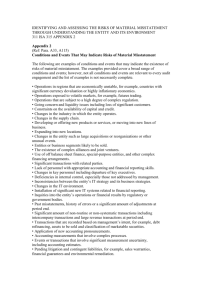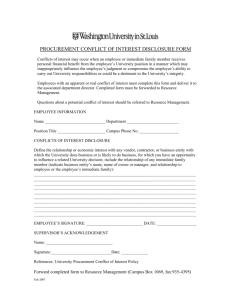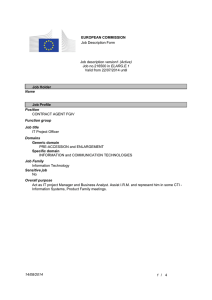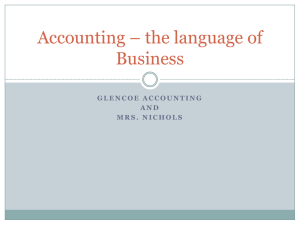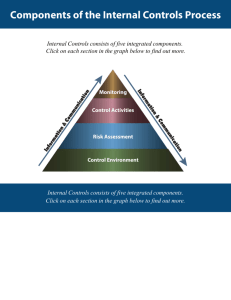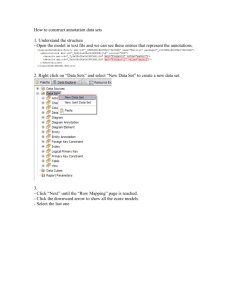Related Parties and Related Party Disclosures
advertisement
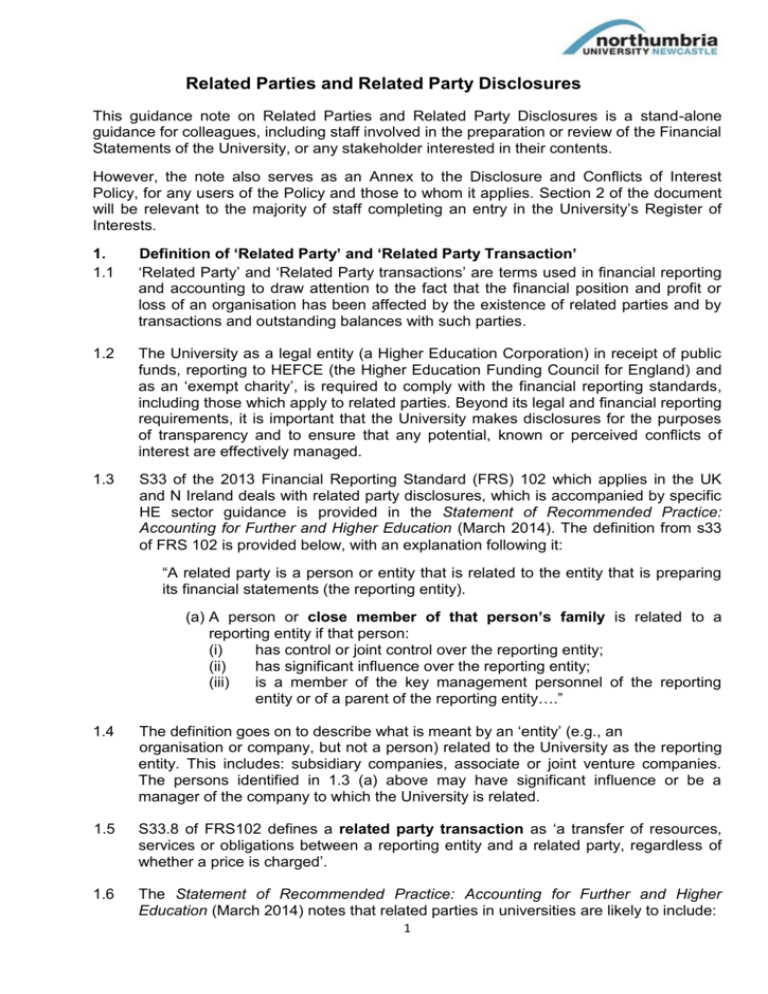
Related Parties and Related Party Disclosures This guidance note on Related Parties and Related Party Disclosures is a stand-alone guidance for colleagues, including staff involved in the preparation or review of the Financial Statements of the University, or any stakeholder interested in their contents. However, the note also serves as an Annex to the Disclosure and Conflicts of Interest Policy, for any users of the Policy and those to whom it applies. Section 2 of the document will be relevant to the majority of staff completing an entry in the University’s Register of Interests. 1. 1.1 Definition of ‘Related Party’ and ‘Related Party Transaction’ ‘Related Party’ and ‘Related Party transactions’ are terms used in financial reporting and accounting to draw attention to the fact that the financial position and profit or loss of an organisation has been affected by the existence of related parties and by transactions and outstanding balances with such parties. 1.2 The University as a legal entity (a Higher Education Corporation) in receipt of public funds, reporting to HEFCE (the Higher Education Funding Council for England) and as an ‘exempt charity’, is required to comply with the financial reporting standards, including those which apply to related parties. Beyond its legal and financial reporting requirements, it is important that the University makes disclosures for the purposes of transparency and to ensure that any potential, known or perceived conflicts of interest are effectively managed. 1.3 S33 of the 2013 Financial Reporting Standard (FRS) 102 which applies in the UK and N Ireland deals with related party disclosures, which is accompanied by specific HE sector guidance is provided in the Statement of Recommended Practice: Accounting for Further and Higher Education (March 2014). The definition from s33 of FRS 102 is provided below, with an explanation following it: “A related party is a person or entity that is related to the entity that is preparing its financial statements (the reporting entity). (a) A person or close member of that person’s family is related to a reporting entity if that person: (i) has control or joint control over the reporting entity; (ii) has significant influence over the reporting entity; (iii) is a member of the key management personnel of the reporting entity or of a parent of the reporting entity….” 1.4 The definition goes on to describe what is meant by an ‘entity’ (e.g., an organisation or company, but not a person) related to the University as the reporting entity. This includes: subsidiary companies, associate or joint venture companies. The persons identified in 1.3 (a) above may have significant influence or be a manager of the company to which the University is related. 1.5 S33.8 of FRS102 defines a related party transaction as ‘a transfer of resources, services or obligations between a reporting entity and a related party, regardless of whether a price is charged’. 1.6 The Statement of Recommended Practice: Accounting for Further and Higher Education (March 2014) notes that related parties in universities are likely to include: 1 members of the governing body and their close family, who hold influential posts in public or private sector organisations with which the institution has transactions; senior staff who hold significant influence on other bodies with which the institution has transactions, e.g., an NHS healthcare trust associations, collaborations and joint venture entities not fully eliminate on consolidation; pension schemes for the benefit of employees of either the reporting entity. 1.7 The Head of Governance, Chief Operating Officer and Deputy Finance Director (Accounting) work with the external auditors in the identification and determination of relevant related parties and transactions for disclosure. Our principal source of information here is the Register of Interests of Governors, University Executive and wider Senior Management Group. 2. The wider meaning of related parties for staff disclosures of interests 2.1 The majority of staff who are required, or who decide to complete an entry in the University’s Register of Interests are unlikely to have control, joint control, significant influence or be key management personnel of the reporting entity. Therefore, if staff or members of their close family are linked to another person or entity associated with the University, and there has been a transfer of resources, services or obligations between the University and that individual and the University, this is unlikely to be disclosed in the Financial Statements. 2.2 Aside from the financial reporting and accounting requirements identified in Section 1 above, we ask staff completing an entry in the Register of Interests to disclose any relationships with individuals or bodies that they or a member of their close family or friends have with the University, of which they are aware. 2.3 The reason we request this information is that it might highlight relationships of which it would be useful for colleagues in the University to be aware. For example, if a member of staff initiates a contact with an individual or company, it is good customer relationship management to be aware of any pre-existing links or associations that exist between the University and that individual or body. This is also a form of safeguard for employees that they have informed the University of the relationship that exists, in the event of any positive or adverse media attention, or any perceived or actual conflicts of interests arising from the relationship. For Further Information, please contact: Adam Dawkins Head of Governance and Secretary to the Board of Governors adam.dawkins@northumbria.ac.uk 2

